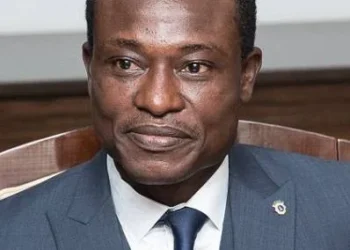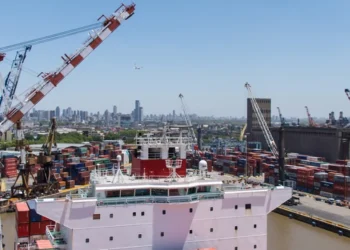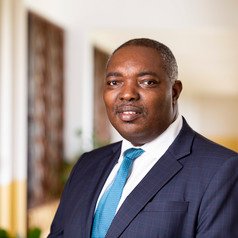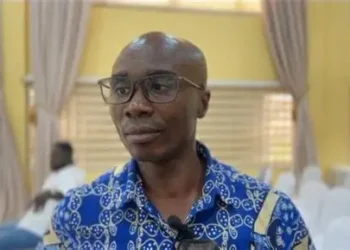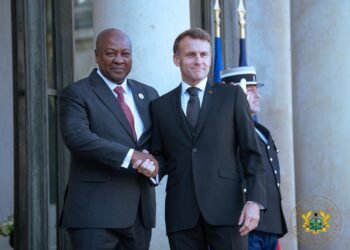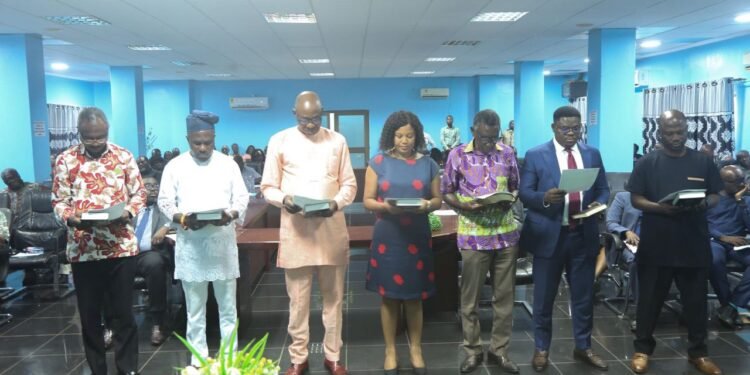At the First African Union Debt Conference held in Lomé, Togo, President of Ghana HE John Dramani Mahama delivered a compelling address, urging African nations to rethink the continent’s debt trajectory.
Speaking as a distinguished statesman with firsthand experience managing a nation during turbulent fiscal times, President Mahama advocated for a renewed vision of debt—one that serves development rather than distress.
In a continent grappling with escalating debt burdens and recurrent economic shocks, President Mahama’s remarks underscore the need for critical actions.
He emphasized that while fiscal consolidation is necessary, it must not undermine the social safety net or derail investments in key sectors that hold the future of African prosperity.
“Ghana is committed to rebuilding its fiscal buffers, strengthening our institutions, and promoting inclusive growth. But our fiscal consolidation must not come at the cost of social protection.”
President John Dramani Mahama
Outlining Ghana’s post-crisis fiscal recovery strategy, President Mahama detailed a three-pronged approach aimed at ensuring that the country’s economic reform efforts do not sacrifice equity for stability.
First, he said, Ghana would protect investments in education, youth empowerment, and rural development—pillars he described as non-negotiable for sustainable national progress.
Second, President Mahama announced plans to improve debt transparency and accountability through the creation of an independent fiscal council.
Such a body, he argued, would serve to “enhance fiscal discipline and ensure citizens and investors alike have confidence in how public finances are managed.”
The third element of his strategy involves the expansion of the Ghana Infrastructure Investment Fund (GIIF), positioning it to attract private capital into public development projects.

Reducing Reliance on External Borrowing
According to President Mahama, this is key to reducing reliance on external borrowing, which often comes with unfavourable terms and rigid repayment structures.
“Our goal is not just to reduce our debts, It is to transform our economy. Debt must not erode our dignity or delay our development. It must finance opportunity and lay the foundation for intergenerational progress.”
President John Dramani Mahama,
President Mahama’s call was not merely domestic; it was continental. He challenged fellow African leaders to adopt a more innovative and assertive approach to debt.
He urged the continent to abandon the reactive, aid-dependent model of the past and replace it with a proactive framework built on resilience, innovation, and long-term planning.
“Innovation must guide our debt strategy. We must explore new options while broadening our tax base, digitizing revenue collection, and enhancing domestic capital markets to reduce dependency on external borrowing.”
President John Dramani Mahama

Resetting Africa’s Debt Narrative
The President also touched on the global financial architecture, which many African leaders have long argued is stacked against the continent.
He framed the Lomé Conference as a historic moment to reset Africa’s debt narrative and reposition the continent in global financial conversations—not as victims of fiscal crises, but as visionary leaders demanding equitable reform.
“How do we redefine Africa’s debt narrative? Let us leave here with a renewed vision—where debt is no longer synonymous with crisis, but with capacity; where our economies are built not on extraction and aid, but on innovation, value addition, and equity.”
President John Dramani Mahama,
He concluded his speech with a rallying call for continental unity, declaring Ghana’s readiness to work shoulder to shoulder with other African nations to champion this bold new direction.
He emphasized that an Africa, united in vision and action, can overcome its debt challenges and deliver prosperity for generations of Africans yet to come.
It is impossible to overestimate the importance of President Mahama’s intervention. His address coincides with a number of African nations, including Ghana, negotiating debt restructuring and interacting with multilateral organizations such as the World Bank and IMF.

President Mahama’s plans mark a significant departure from governance as usual and a shift toward open, inclusive, and creative policymaking for Ghana, which is currently participating in an IMF program following its external debt default.
President Mahama’s vision provides a roadmap based on ambition, equity, and pragmatism as African leaders, policymakers, and development partners consider the future after the Lomé Conference.
If put into practice, it might contribute to changing not just Ghana’s economy but also the continent’s financial future.
READ ALSO: CDD-Ghana Boss Demands Tougher Regulation on Ostentatious Gift-Giving




